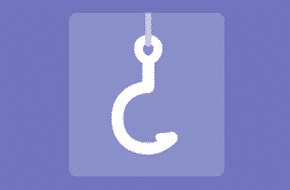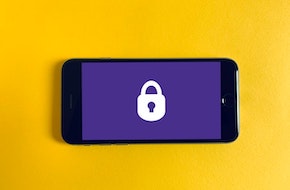
Stay Productive, Even When Working Remote
Don’t let distractions drag you down!
If you’ve ever tried working from home, or anywhere remote, you know the distractions can seem endless. Household chores or the chance to people-watch can easily drag your mind away from the task at hand. We anticipate many more people will be working remotely than usual in the coming days. That’s why we wanted to provide the tips that we’ve found helpful from our experience working in places other than an office. You can make it through!
Get in a working mindset
The first step is to make sure your head is in the right place, and your mind is prepped to be productive. While it may be tempting to work in your pajamas, that can subconsciously tell your body that it’s time to relax. Some people may be able to get away with it, but not everybody. You’ll find a list of ideas below – try as many or as few as you need to remind yourself that it’s time to get to work!
- Dress like you’re going into the office, even if you’re not. Put on proper clothes, shower, shave, and do everything you normally would to get ready in the morning. Routines are powerful when put to proper use.
- Set aside a specific place to work. While the couch may call to you with its comforting cushions, you don’t want to end up taking a nap! Having a desk or study naturally makes this easier. But even if you don’t, we recommend setting aside one specific place to work that’s consistent.
- Remove yourself from distractions. Some people keep work in their house, because all they see are chores to be done. While going out to a coffee shop or work coop might not be realistic, even setting up outside on your porch or balcony could be enough. Whether you’re distracted by chores or anything else, moving away from the temptation is better than having it gnaw at your mind.
Know when to log off after working from home
While distractions during work may affect some, others have the opposite problem. When they work at home, they can’t separate their work life from their personal life. They practically live in their office now! However, a proper work-life balance is especially important to remote workers, since the trip to bring work home is nonexistent. It’s imperative to know when to log off, and how to log off, too. Set a solid time to punch in and punch out. If you need to put your computer in the other room to punch out, or disconnect your email account from your phone, do it. Your body and mind need time to recover after a hard day’s work, or else you risk your productivity and focus dropping dramatically. There’s more to life than work, anyway!
Create structure in your day
We mentioned having a set time to punch in and punch out, and that’s a good starting point to building some structure into your day when working from home. But it needs to go a bit further than that. Without the more consistent feedback and communication of an office setting, you can easily feel like you’re spinning your wheels. Is this really what you should be working on? Is it good enough to move on? What’s the priority anyway?
Those questions are a sure way to lose a day on busywork. So lay out a plan for your day. List out the tasks that need to get done, in their order of importance, and then start crossing them off. If your job is more responsive, create a task log of communications and requests before starting anything. It’s easy to jump on the first thing that comes across your plate, but having a plan to stay organized is crucial. Even if you only have one task for the day, break it down into smaller chunks and milestones that you can reach. It’s important to have something to gauge your progress, and stay motivated to keep moving down the to-do list.
Keep communication open and clear when working from home
A lot of communication is done non-verbally. Even outside of body language, emphasis and tone go a long way to make your points clear. Talking with text only, like in email, is prone to miscommunications or entirely missed communications. By all means – send lots of emails to keep a log of your correspondence and send links and the like. But if communication issues arise, your first step should be to jump on the phone. Not only will the conversation go more smoothly, but you’ll show your coworkers and clients that you’re available and ready to help. It’s best to err on the side of caution. If you’re debating whether or not to contact somebody, you probably should. Better to overcommunicate and make points abundantly clear, than to under-communicate and create confusion and distrust. Even a simple “thank you” email or repository comment can go a long way, just in demonstrating your receipt of the message and your appreciation.
Make time for social interactions
We said it before, but we’ll say it again: life isn’t all about work. When you work in the office, there are tons of tiny conversations with other coworkers. You ask about each other’s day, check in on known issues, make jokes, and overall develop bonds. When working from home, those bonds don’t come quite so conveniently, but that doesn’t make them any less important. Here are a few tips on keeping bonds with your friends and coworkers strong, even remotely:
- Start and end phone conversations with small talk. It’s tempting to jump straight into work, but take the time to talk to people on a personal level first. While it may not be urgent, it’s still important.
- Schedule get-togethers, even if they’re virtual. A group video call or online hangout can go a long way to bolstering team morale, especially when everybody’s not getting as much social interaction as they may be used to.
- Start a personal email chain. If you have somebody you used to share a desk or an office with, keep the conversations going in a separate email correspondence. You can keep up your personal conversations as usual, and keep it separate when it’s time to get down to business.
Our final tip: hang in there! Working from home certainly takes some adjustment, but anybody can adapt with the right mindset and solid plan.



